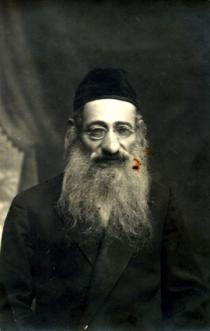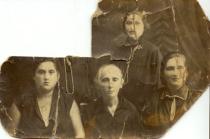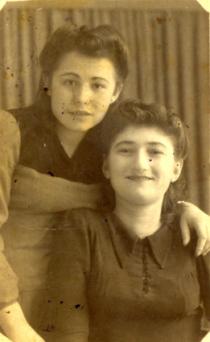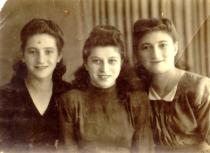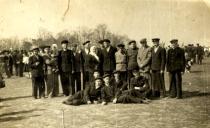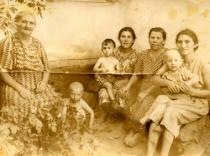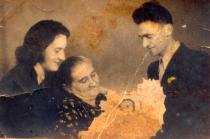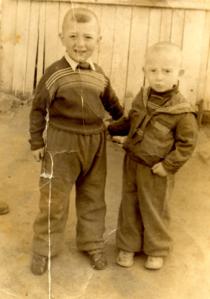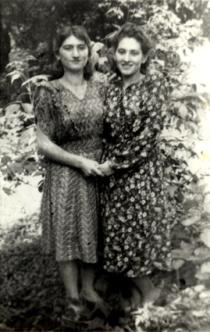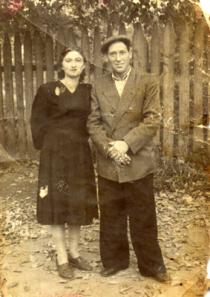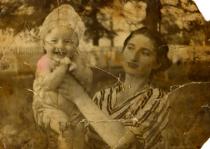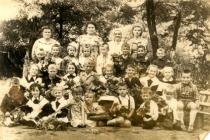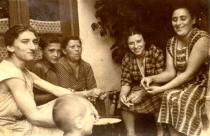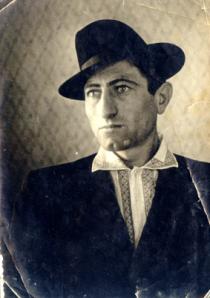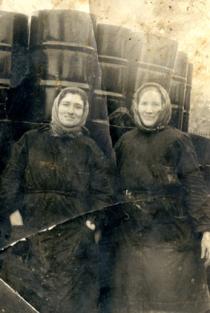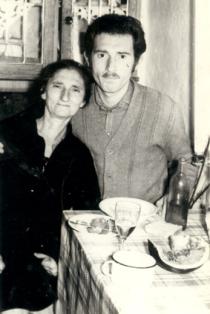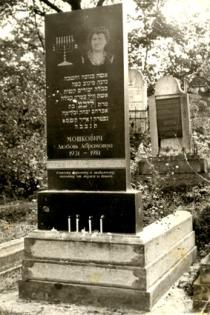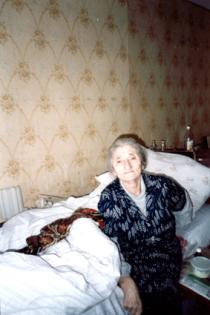This is a photo of me. It was taken in June 2004 during the interview at my home in Bershad. I am actually bedridden due to my illness.
In 1958 I got a job of a janitor and then I became a worker in the dyeing shop where I worked till I retired. My work was very hard: there was no heating and it was freezing in winter. There were also hazardous vapors from paints, but I was glad to have this job. In the morning taking a slice of bread - my lunch - I ran to work and returned home late in the evening. I worked overtime to earn more.
My younger son Mikhail became a shoemaker after finishing school. He married Bronia, a Jewish girl from Bershad and lived with her and their son Boris in Bershad. I retired in 1985. In the early 1990s my older son Alexey started talking about emigration: he decided to move to USA with his family. They also included me in their documents for emigration. We went to Moscow where we were given the status of refugees, but when my daughter-in-law told me that we were going to live separately in the USA, I burst into crying and told my son I didn't want to spend my old age alone and in a strange country. I refused to go with them and they moved without me. My son and his family live in Chicago. He is an electronic specialist at a plant. Before leaving he bought me a two-room apartment in Bershad - this is where I live now. My daughter-in-law was against it, but my son insisted on his idea, and I can finally enjoy living in a good house. Three years ago - I think, in 2000 Mikhail and his family moved to Germany. I didn't go with them - I don't want to listen to the German language and get used to life in a different country at my age. I want to live the rest of my life beside my own people speaking Yiddish and Ukrainian and I want to be buried in my hometown where I've lived my life. My son lives on welfare. He rarely writes me. Visiting him is out of the question - we don't have money for this and I am afraid I might never see any of my family again in my life.
Of course, I felt sad. In the early 1990s a Jewish community was established in our town, and it helped me to overcome my sadness and find myself in life. I attended Sabbath and participated in celebration of all Jewish holidays. We began to speak Yiddish and talk about traditions. I was involved in preparation to the events. I cooked gefilte fish for Sabbath and baked strudels like mama did it. Jewish women still consult me on recipes. I am not a religious person, but I try to celebrate major Jewish holidays like we always did in our family. I have had a hard life and have always been hard up. I've never been interested in politics. All I've thought about was how to manage from one payday to another and how to provide food for the family. Therefore, it's hard for me to say, when life was harder - during the Soviet period or in the independent Ukraine. But I can say one thing for sure - and that is that I'm grateful to our country for giving an opportunity for religious communities to develop and restore Jewish traditions and religion. I am ill now - I have a severe fracture and cannot attend the community, but they do not leave me. Curator of Hesed, chairman of the community, often visits me. They deliver meals to me at home and buy medications. If it were not for my disease, I would think I have a better life than I've ever had before. I asked my sons to visit me to see each other before I die, but they either cannot afford or don't want to come. My brother does not write me. I know he has two sons, whom I've never seen and cannot remember their names. He has grandchildren, too. I feel very distressed and lonesome. When I feel sad, I hum Jewish songs that my mama taught me. They are sad songs: I sing them and cry: about my bitter fortune, hard life and lonely old age.

